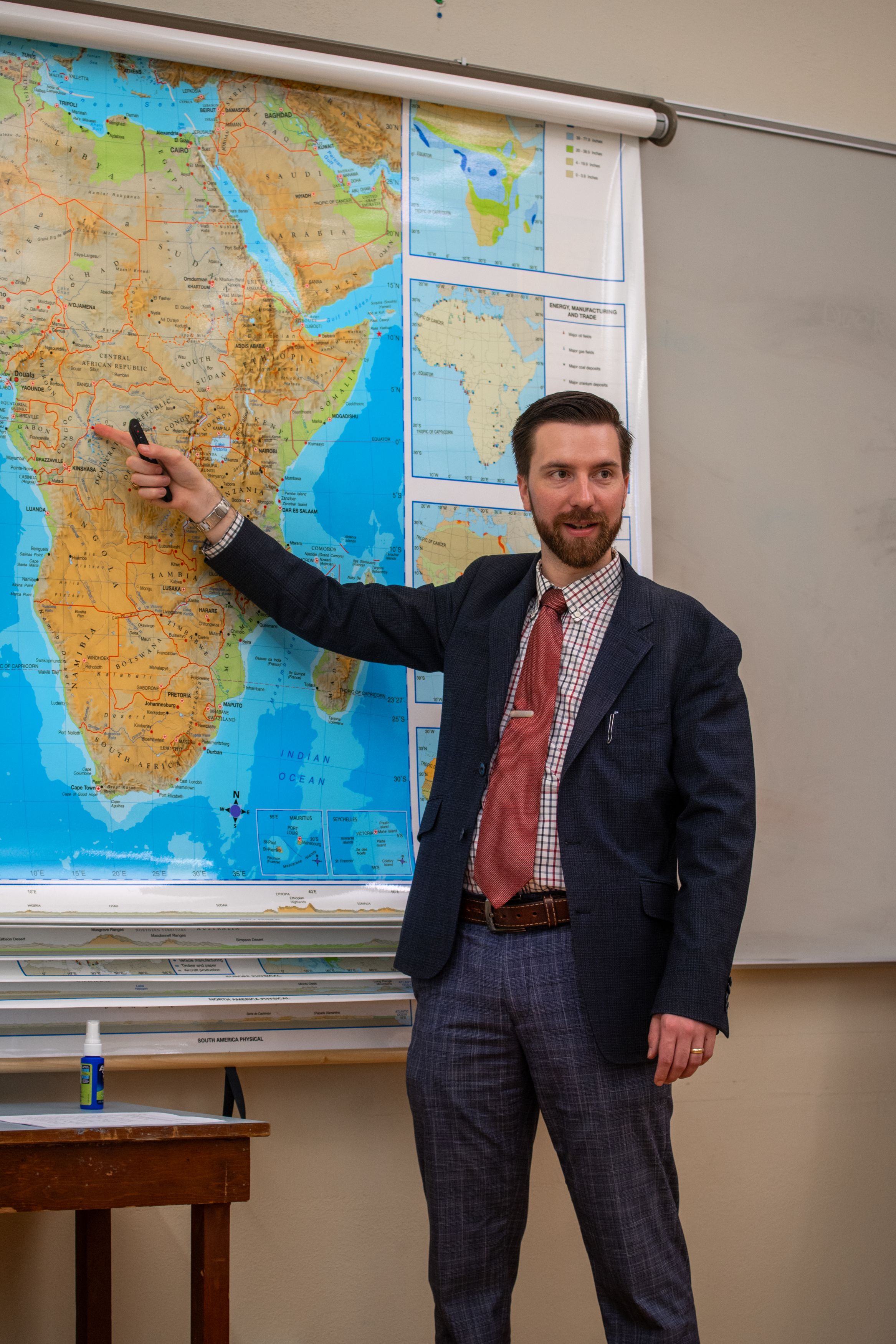

The Social Studies Department is a core component of the St. Joseph High School academic program. All students are encouraged to actively learn about history, geography, government and economics so that they will be educated human beings and citizens. Students are encouraged to think across the curriculum by incorporating elements of English, theology, the sciences, and the arts into analysis of historical events and themes from the United States and around the globe.
Faculty Members
Mr. Thomas Eisman
Mr. Brent Mascheck
Mr. Ted Steinhauser
World Geography
1 Credit ~ 2 Semesters ~ Freshman Level
This course focuses on the relationships between people, places, and environments that result in geographic patterns. Students will learn and apply geographic methods to compare and analyze landforms, climates, and natural resources, as well as cultural, political, economic, and religious characteristics of major world regions. Students will build historical thinking skills by using primary and secondary sources as well as building essential organizational and study skills throughout the course.
World History
1 Credit ~ 2 Semesters ~ Sophomore level
World History is a survey course that focuses on the story of populations and historical themes in cultures across the globe. Students will look at the historical evolution of Europe, Africa, Asia, North America, and South America. Important men and women of these great nations and empires will be explored along with important documents and thematic concepts. Historical skill building and study skills development are important elements of this course in STJ's four-year social studies sequence.
AP World History: Modern
1 Credit - 2 Semesters - Sophomore Level
AP World History: Modern is an introductory college-level modern world history course. Students cultivate their understanding of world history from c. 1200 CE to the present through analyzing historical sources and learning to make connections and craft historical arguments as they explore concepts like humans and the environment, cultural developments and interactions, governance, economic systems, social interactions and organization, and technology and innovation. Completing this AP course may, upon passing the College Board's AP World History: Modern exam in May, earn a student credit for college classes at universities in Texas and across the country.
US History
1 Credit ~ 2 Semesters ~ Junior level
US History is a survey course that will begin with Reconstruction and end around the mid 20th Century. Topics to be explored may include U.S. Expansion, the rise of the U.S. as a world power, the Gilded Age, World War I, the Roaring 20s, the Great Depression, the New Deal, World War II, The Korean Conflict, and the Vietnam War. Close document analysis, critical thinking skills, thematic explorations, and college-level study skills are critical elements of this course and the class represents the core of STJ's four-year social studies sequence.
Advanced Placement U.S. History
1 Credit ~ 2 Semesters ~ Junior level
AP US History is a university-style course that explores 500 years of American History from the Columbian Encounter to approximately 1995. This course is fast-paced, reading intensive, discussion focused, and utilizes a cooperative curriculum with AP English 3 called American Studies. Completing this AP course may, upon passing the College Board's AP US History exam in May, earn a student credit for college classes at universities in Texas and across the country.
United States Government
½ Credit ~ 1 Semester ~ Senior level
Government is a capstone course in which students will explore the U.S. Constitution with the primary focus being on the Congress, the Presidency, and the Judiciary. The course will also address the roles of citizens in America with a special look at civil liberties. Special focus will paid to current events including election results in addition to national, state, and local issues.
Economics
½ Credit ~ 1 Semester ~ Senior level
Economics is a capstone course in which students will study the structure and function of the U.S. Economic system and variety of influences upon it. The basic elements include the principles of growth affecting the national economy, basic economic principles, consumer skills, national problems and goals and international economics.